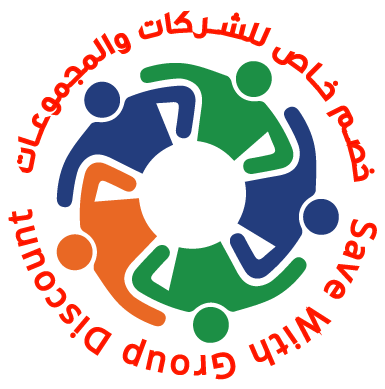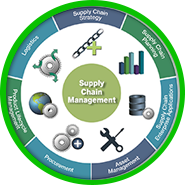Management / Human Resources
Strategic HR Management and Competency-Based Development
MH501
This course, Strategic HR Management and Competency-Based Development, provides participants with the knowledge and skills to align human resource practices with organizational strategy. It introduces competency-based frameworks and explains how HR can serve as a strategic partner to drive business success. The course covers key concepts such as strategic HR planning, competency mapping, program design, HR analytics, and ROI evaluation. Through practical exercises, case studies, and real-world applications, participants will gain the tools to create impactful HR strategies that support long-term organizational goals.
- Understand Strategic HR's Role: Gain insights into how HR can influence organizational strategy and support business goals.
- Competency-Based Development: Learn how to design and implement competency-based frameworks that promote employee development.
- Data-Driven Decision Making: Use HR analytics and key performance indicators (KPIs) to measure training effectiveness and track competency growth.
- Strategic Program Design: Apply instructional design models, such as ADDIE, to develop competency-based training programs.
- Evaluate and Measure ROI: Learn how to measure the return on investment (ROI) for training programs and assess their organizational impact.
- Develop Action Plans: Create actionable strategies for aligning workforce planning, competency needs, and organizational culture.
This course is ideal for professionals involved in HR strategy, workforce development, and competency-based learning, including:
- HR Managers and Directors: Seeking to enhance HR’s role as a strategic partner.
- Learning & Development Professionals: Focused on competency-based training and development.
- HR Business Partners: Looking to integrate strategic goals into HR functions.
- Training Managers: Responsible for developing and implementing training programs.
- Senior Managers and Leaders: Who wish to align workforce competencies with strategic business objectives.
Day 1: Foundations of Strategic HR and Competency-Based Learning
Overview of Strategic Human Resource Management
- Topics:
- Understanding Strategic HR and its importance in organizational goals.
- Strategic HR Management drivers and core functions of HR.
- Learning Points:
- Define Strategic HR and its impact on organizational success.
- Identify key roles of HR in promoting strategic alignment.
- Activity: Group exercise mapping HR’s role in organizational goals based on real-world examples.
HR’s Evolving Role and Competency Frameworks
- Topics:
- Strategic, operational, and administrative roles of HR.
- Introduction to competency frameworks and types of competencies.
- Learning Points:
- Recognize how HR roles evolve to meet strategic demands.
- Understand competencies and their organizational impact.
- Activity: Group discussion and activity on identifying essential competencies for critical HR roles.
Introduction to Competency-Based Learning and Development
- Topics:
- The principles of competency-based learning.
- Linking competency development to business goals.
- Learning Points:
- Define competency-based development and its benefits.
- Explore strategies for aligning competencies with strategic objectives.
- Activity: Case study review on competency development strategies in leading organizations.
Day 2: Strategic Planning and Competency Design
Strategic Planning and Environmental Analysis in HR
- Topics:
- The strategic planning process for HR.
- Internal and external environment scanning.
- Learning Points:
- Understand strategic planning steps.
- Conduct a brief SWOT analysis for HR initiatives.
- Activity: SWOT analysis exercise specific to HR functions within participants’ organizations.
Designing Competency-Based Programs using the ADDIE Model
- Topics:
- Overview of the ADDIE model for structured training design.
- Best practices for competency-based training material development.
- Learning Points:
- Apply the ADDIE model to competency-based program design.
- Identify essential elements of competency-based training resources.
- Activity: Group activity to create an outline of a competency-based training program using the ADDIE model.
Linking Competencies with Business Strategy
- Topics:
- Aligning competencies to support competitive advantage.
- Identifying business-driven competencies for key roles.
- Learning Points:
- Integrate organizational strategy with competency framework development.
- Identify competencies that align with and support strategic goals.
- Activity: Participants design competency maps aligned to specific business objectives.
Day 3: Implementation and HR Analytics
Developing Training Resources and Program Implementation
- Topics:
- Essentials of creating and implementing training resources.
- Competency-based learning activity planning.
- Learning Points:
- Design effective training resources for competency growth.
- Best practices in competency-based program implementation.
- Activity: Group exercise to develop a competency-based training module.
Introduction to HR Analytics and Key Performance Indicators (KPIs)
- Topics:
- Basics of HR analytics for tracking and measuring training success.
- Understanding KPIs related to HR and competency growth.
- Learning Points:
- Use analytics to evaluate competency program effectiveness.
- Identify KPIs for tracking strategic HR contributions.
- Activity: Participants develop a sample KPI framework for evaluating competency-based training.
Using Data to Monitor Competency Growth
- Topics:
- Analyzing and using data to assess competency development.
- Practical tools for monitoring and tracking competency progress.
- Learning Points:
- Monitor competency development through data-driven insights.
- Evaluate training effectiveness with real-time data.
- Activity: Data analysis exercise using sample competency data to assess learning outcomes.
Day 4: Evaluation and Measuring ROI
Evaluation Models for Training Programs
- Topics:
- Introduction to the Kirkpatrick Four-Level Evaluation Model.
- Techniques for competency-based program evaluation.
- Learning Points:
- Apply the Kirkpatrick model for effective program evaluation.
- Differentiate between formative and summative evaluations.
- Activity: Role-play activity evaluating a sample training module using the Kirkpatrick model.
Calculating ROI for Competency-Based Programs
- Topics:
- Measuring return on investment for training initiatives.
- Practical techniques for assessing training’s impact on performance.
- Learning Points:
- Calculate ROI and assess competency program effectiveness.
- Measure competency development impact on organizational success.
- Activity: Hands-on exercise calculating ROI for a hypothetical competency-based training initiative.
Job Performance Metrics and Learning Transfer
- Topics:
- Job performance evaluation aligned with competency goals.
- Ensuring the transfer of learning from training to job performance.
- Learning Points:
- Design performance metrics that align with competency development.
- Maximize learning transfer to enhance practical application.
- Activity: Workshop to develop strategies for enhancing learning transfer on the job.
Day 5: Strategic Workforce Planning and Action Planning
Strategic Workforce Planning and Competency Needs
- Topics:
- Aligning workforce planning with competency requirements.
- Identifying future workforce needs based on strategic goals.
- Learning Points:
- Integrate workforce planning with competency-based strategy.
- Forecast competency needs for future organizational roles.
- Activity: Participants draft a workforce plan based on anticipated competency requirements.
Organizational Culture and Competency Development
- Topics:
- Role of culture in competency-based growth.
- Using culture mapping tools to support strategic competency changes.
- Learning Points:
- Leverage culture to support competency growth and sustainability.
- Design cultural interventions that align with competency frameworks.
- Activity: Culture mapping exercise to identify key cultural changes for competency development.
Action Planning and Course Wrap-Up
- Topics:
- Developing actionable strategies for implementing course learning.
- Summarizing key takeaways and preparing for application.
- Learning Points:
- Create action plans for implementing competency-based HR strategies.
- Finalize strategic insights and key outcomes.
- Activity: Participants present action plans for feedback and discuss potential challenges and solutions.
The course follows an interactive, learner-centered approach that blends theory with practical application. The key methods include:
- Workshops and Group Activities: Hands-on activities such as SWOT analysis, competency mapping, and data analysis exercises.
- Case Studies and Real-World Examples: Reviewing case studies from leading organizations to explore best practices.
- Role Plays and Simulations: Participants engage in role-playing activities to reinforce key concepts like ROI calculation and program evaluation.
- Interactive Discussions: Collaborative discussions on key HR challenges and strategic approaches.
- Action Planning and Reflection: Each participant develops a customized action plan to apply learning within their organization.
Terms & Conditions
ACTrain reserves the right to alter the Course Schedule without Prior Notification, Fees Quoted are Subject to Terms & Conditions Outlined in ACTrain's Registration Policy













